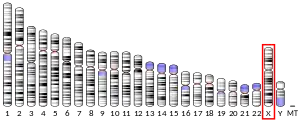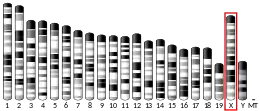| RTL8C | |||||||||||||||||||||||||||||||||||||||||||||||||||
|---|---|---|---|---|---|---|---|---|---|---|---|---|---|---|---|---|---|---|---|---|---|---|---|---|---|---|---|---|---|---|---|---|---|---|---|---|---|---|---|---|---|---|---|---|---|---|---|---|---|---|---|
| Identifiers | |||||||||||||||||||||||||||||||||||||||||||||||||||
| Aliases | RTL8C, CXX1, MAR8C, MART8C, Mar8, Mart8, FAM127A, family with sequence similarity 127 member A, SIRH5, retrotransposon Gag like 8C | ||||||||||||||||||||||||||||||||||||||||||||||||||
| External IDs | OMIM: 300213 MGI: 1920115 HomoloGene: 124163 GeneCards: RTL8C | ||||||||||||||||||||||||||||||||||||||||||||||||||
| |||||||||||||||||||||||||||||||||||||||||||||||||||
| |||||||||||||||||||||||||||||||||||||||||||||||||||
| |||||||||||||||||||||||||||||||||||||||||||||||||||
| |||||||||||||||||||||||||||||||||||||||||||||||||||
| |||||||||||||||||||||||||||||||||||||||||||||||||||
| Wikidata | |||||||||||||||||||||||||||||||||||||||||||||||||||
| |||||||||||||||||||||||||||||||||||||||||||||||||||
CAAX box protein 1 is a protein that in humans is encoded by the FAM127A gene.[5][6][7][8]
References
- 1 2 3 GRCh38: Ensembl release 89: ENSG00000134590 - Ensembl, May 2017
- 1 2 3 GRCm38: Ensembl release 89: ENSMUSG00000051851 - Ensembl, May 2017
- ↑ "Human PubMed Reference:". National Center for Biotechnology Information, U.S. National Library of Medicine.
- ↑ "Mouse PubMed Reference:". National Center for Biotechnology Information, U.S. National Library of Medicine.
- ↑ Frattini A, Faranda S, Zucchi I, Vezzoni P (Jan 1998). "A low-copy repeat in Xq26 represents a novel putatively prenylated protein gene (CXX1) and its pseudogenes (DXS9914, DXS9915, and DXS9916)". Genomics. 46 (1): 167–9. doi:10.1006/geno.1997.5006. PMID 9403077.
- ↑ Brandt J, Schrauth S, Veith AM, Froschauer A, Haneke T, Schultheis C, Gessler M, Leimeister C, Volff JN (Apr 2005). "Transposable elements as a source of genetic innovation: expression and evolution of a family of retrotransposon-derived neogenes in mammals". Gene. 345 (1): 101–11. doi:10.1016/j.gene.2004.11.022. PMID 15716091.
- ↑ Brandt J, Veith AM, Volff JN (Aug 2005). "A family of neofunctionalized Ty3/gypsy retrotransposon genes in mammalian genomes". Cytogenet Genome Res. 110 (1–4): 307–17. doi:10.1159/000084963. PMID 16093683. S2CID 38398479.
- ↑ "Entrez Gene: FAM127A family with sequence similarity 127, member A".
Further reading
- Andersson B, Wentland MA, Ricafrente JY, et al. (1996). "A "double adaptor" method for improved shotgun library construction". Anal. Biochem. 236 (1): 107–13. doi:10.1006/abio.1996.0138. PMID 8619474.
- Yu W, Andersson B, Worley KC, et al. (1997). "Large-scale concatenation cDNA sequencing". Genome Res. 7 (4): 353–8. doi:10.1101/gr.7.4.353. PMC 139146. PMID 9110174.
- Strausberg RL, Feingold EA, Grouse LH, et al. (2003). "Generation and initial analysis of more than 15,000 full-length human and mouse cDNA sequences". Proc. Natl. Acad. Sci. U.S.A. 99 (26): 16899–903. Bibcode:2002PNAS...9916899M. doi:10.1073/pnas.242603899. PMC 139241. PMID 12477932.
- Gerhard DS, Wagner L, Feingold EA, et al. (2004). "The status, quality, and expansion of the NIH full-length cDNA project: the Mammalian Gene Collection (MGC)". Genome Res. 14 (10B): 2121–7. doi:10.1101/gr.2596504. PMC 528928. PMID 15489334.
- Ross MT, Grafham DV, Coffey AJ, et al. (2005). "The DNA sequence of the human X chromosome". Nature. 434 (7031): 325–37. Bibcode:2005Natur.434..325R. doi:10.1038/nature03440. PMC 2665286. PMID 15772651.
- Lim J, Hao T, Shaw C, et al. (2006). "A protein-protein interaction network for human inherited ataxias and disorders of Purkinje cell degeneration". Cell. 125 (4): 801–14. doi:10.1016/j.cell.2006.03.032. PMID 16713569.
This article is issued from Wikipedia. The text is licensed under Creative Commons - Attribution - Sharealike. Additional terms may apply for the media files.



